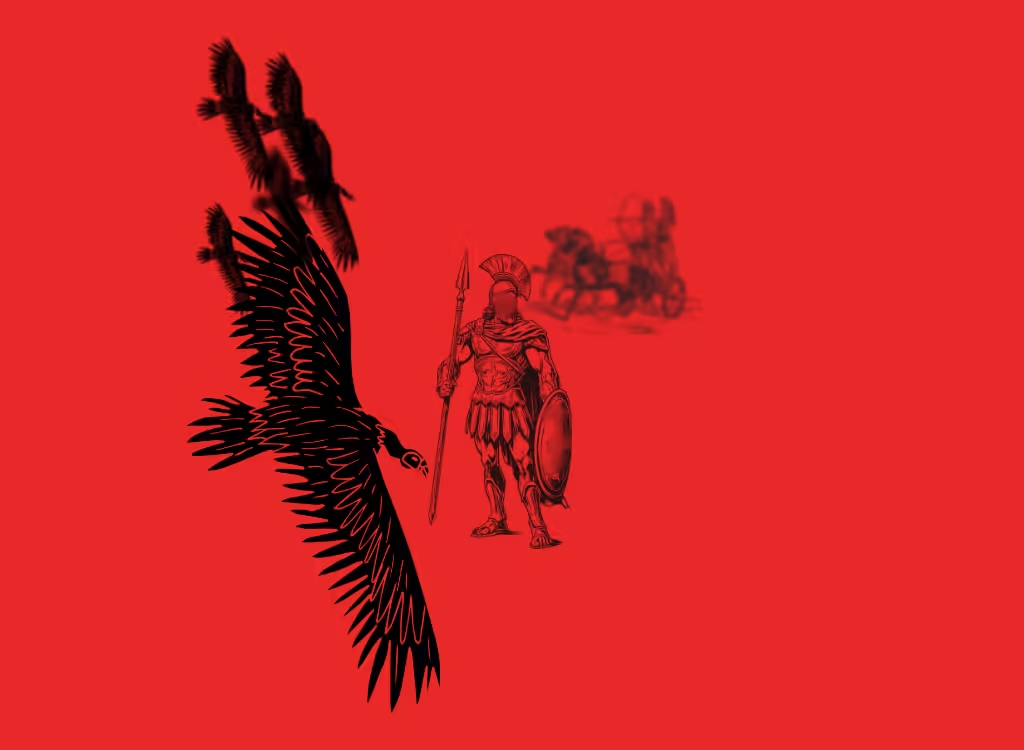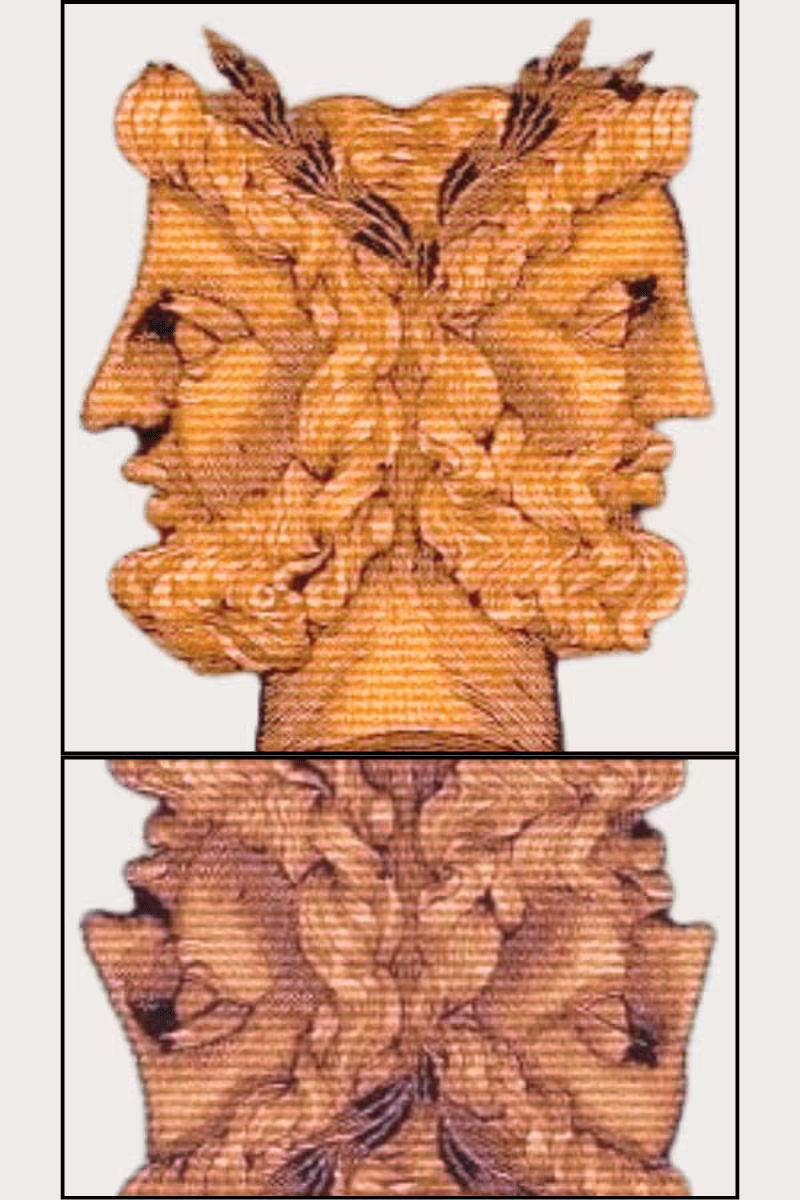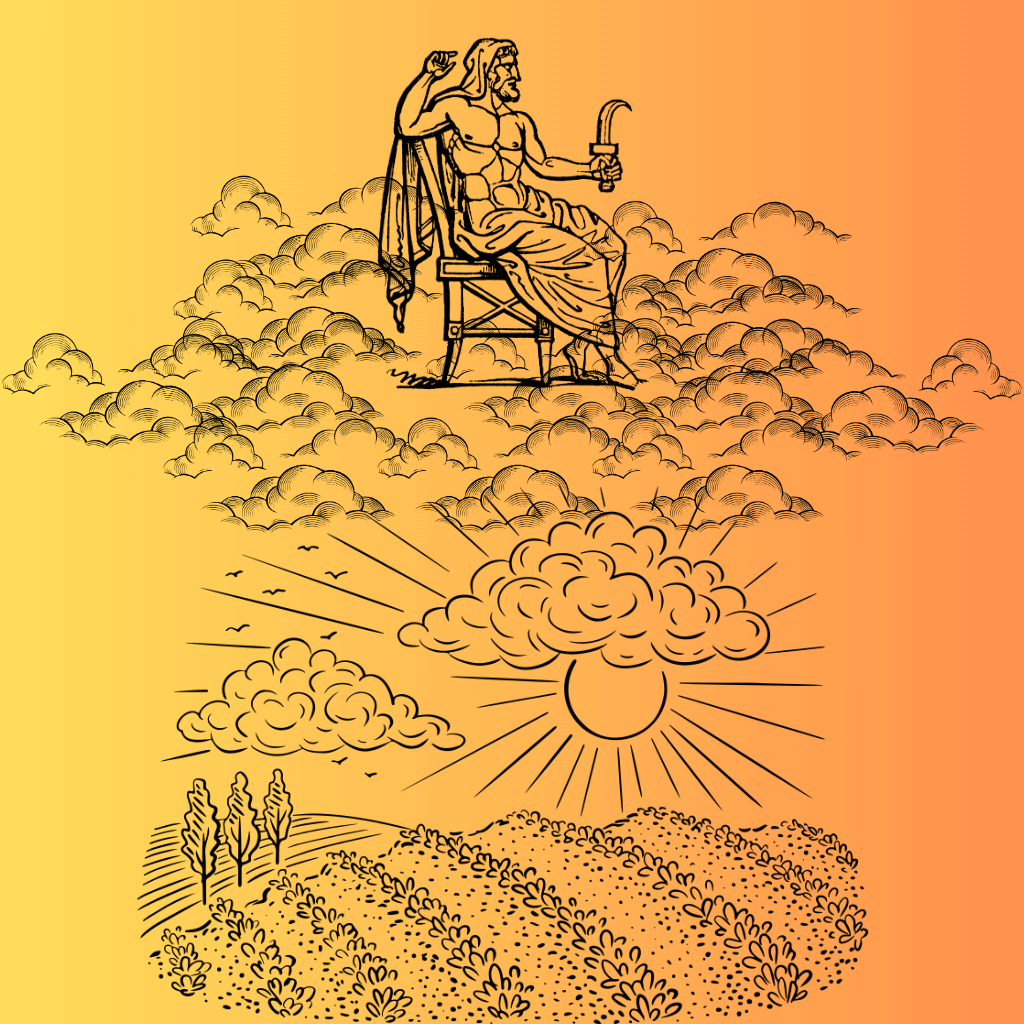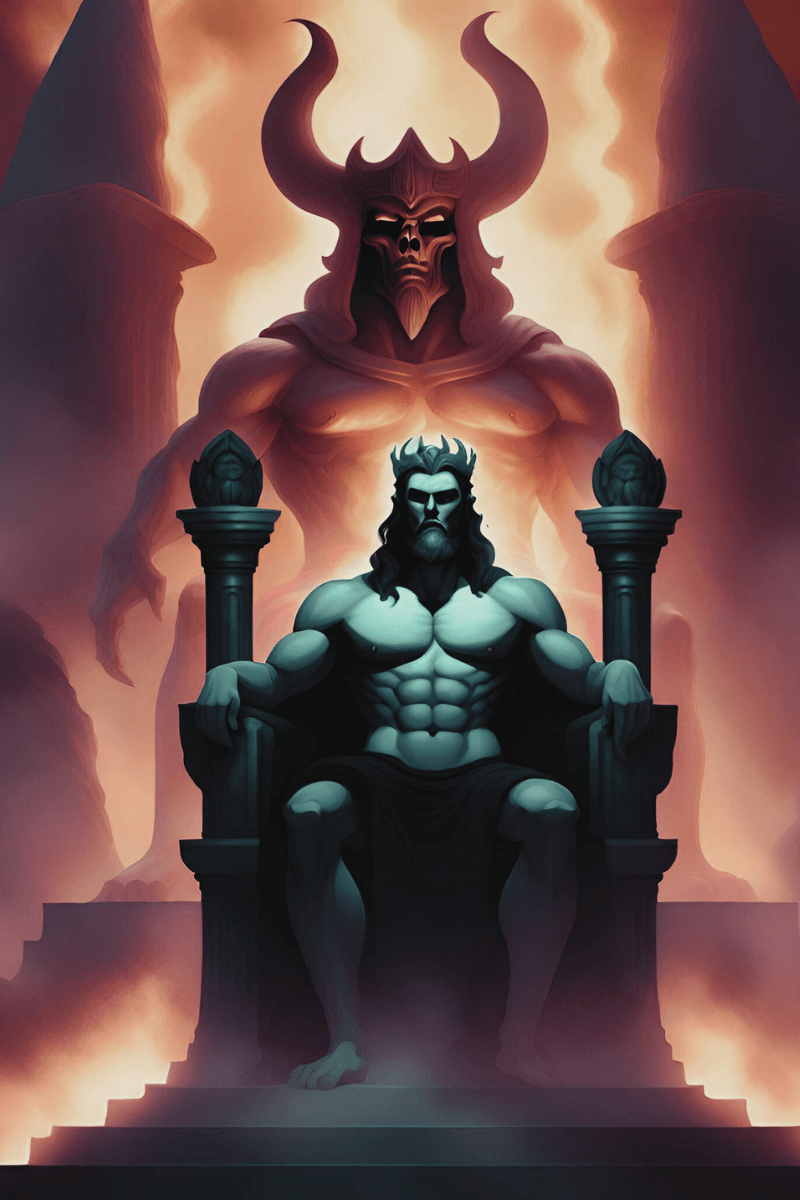
The God of the Underworld in Greek Mythology: Hades
Hades, the son of the Titan Cronus (Kronos) and Rhea, is the brother of Zeus, the husband of Persephone, and the God of the Underworld in Greek Mythology.
From the union of Cronus and Rhea, six children were born: Hestia, Poseidon, Hades, Demeter, Hera, and Zeus.
After the war with the Titans, Zeus became the god of the sky and the earth, Poseidon became the god of the sea, and Hades became the god of the Underworld. According to Homer, the three brothers drew lots to divide their responsibilities, and based on the results, their realms were distributed. Hades, commonly depicted as a solitary and somber god, was deemed fitting for the role of the Lord of the Dead.
As he resided in the Underworld and rarely left, Hades was not counted among the twelve Olympian gods who dwelled on Mount Olympus. If compelled to leave the Underworld, he used a chariot drawn by four coal-black horses. In the face of obstacles, he wielded his double-pronged weapon, a symbol of his power, to overcome them.
The God of the Underworld rarely visited Olympus and seldom interacted with other gods and goddesses. Similarly, other deities preferred to keep their distance from the Underworld. Thus, ultimate authority, control, and sovereignty over this realm rested entirely in the hands of the master of the Land of the Dead.
He owned the three-headed dog Cerberus, the guardian of the Underworld.
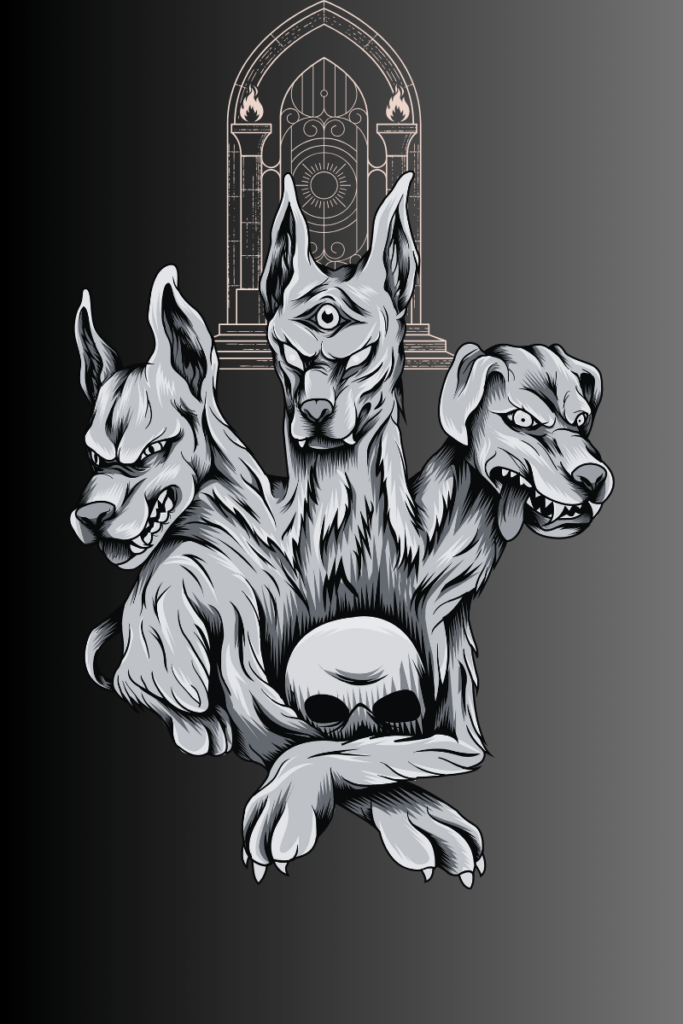
Hades’ Wife Persephone
The God of the Underworld kidnapped and later married Zeus’s daughter Persephone. The myth about Hades and Persephone, where Demeter searched for her daughter for an extended period and eventually reached a compromise for their reunion, holds a significant place in Greek mythology.
THE REALM OF THE DEAD AND ITS MASTER
While he ruled the Underworld, he was not the decision-maker of who would live or die. His role was to determine where the deceased would reside in the Underworld and maintain order in this realm. In short, he served as a god with no direct association with death or fate, solely governing as the master of the dead. Despite being perceived as harsh and uncompromising, he was not particularly beloved due to his unyielding nature. Naturally, he wasn’t considered a benevolent god.
Any living being who consumed even a single morsel in the Underworld was condemned to stay there, unable to return to the surface. Although the gate of the Underworld remained open for outsiders, it was perpetually closed for those seeking to exit. Cerberus, the guardian, allowed no one to pass through. While there were exceptions, with certain heroes managing to leave the Underworld through their skills, intelligence, and sometimes the support of other gods, many who entered this realm were unable to escape.
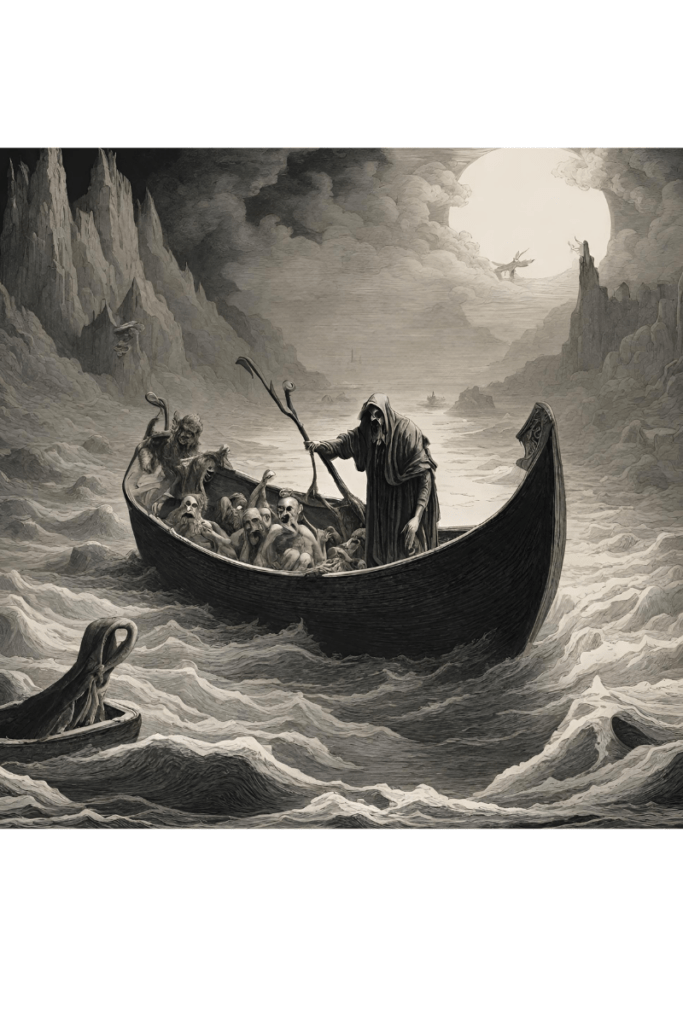
Contrary to being a place of torment, the Underworld was more of a world where the dead experienced an afterlife based on how they lived in the mortal realm.
He received a magical helmet from the Cyclopes for his role in the war against the Titans. This helmet rendered the wearer invisible. The infamous mythological stories involve individuals attempting to obtain this mysterious helmet.
People often avoided using the name of the Greek god Hades directly, as he was feared, and people were wary of arousing his anger. Therefore, when referring to him, the epithet “Ploutos” (Pluto), meaning wealth, was often used. This conveyed a reference to both the riches of the cultivated earth and the inexhaustible wealth hidden in its depths. Hence, he was typically depicted holding the horn of plenty, a symbol of wealth.
In ancient etymology, Hades meant “unseen.” Therefore, the god Hades was often called the “King of the Unseen World.”
Symbols: The Invisible Helmet, Cornucopia (Horn of Plenty)

- Sources;
- Mitoloji Sözlüğü – Azra Erhat
- Mythology – Edith Hamilton
- Myths of Greece and Rome – H.A. Guerber
- Yunan ve Roma Mitolojisi – Collete Estin
- Greek and Roman Mythology – Luke Roman /Monica Roman
- Haldun Taner – Mitoloji
